
Business People
Getty Images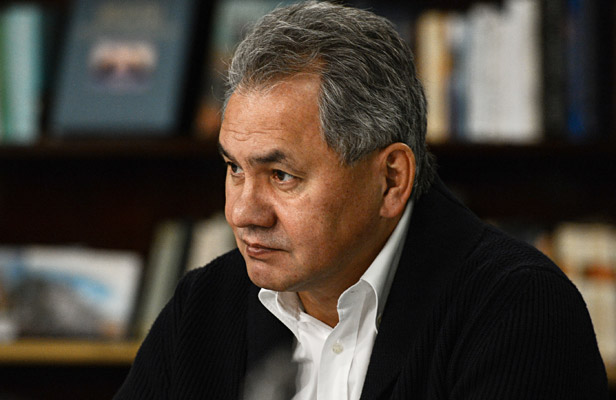 Defense Minister Sergei Shoigu. Source: Eugene Odinokov/RIA Novosti
Defense Minister Sergei Shoigu. Source: Eugene Odinokov/RIA Novosti
Russian Defense Minister since 2012. Previously Minister of Emergency Situations for more than 20 years, he is one of the most popular Russian officials.
In 2015, under Shoigu's supervision, the Russian armed forces prepared to secretly transfer an aviation division to Syria composed of a few dozens of planes and helicopters. Since Sept. 30 Russia’s air force has been conducting strikes on what Moscow says are sites held by Syrian Islamists. The military campaign includes long-range aviation, navy ships and submarines, and Russia is using guided missiles for the first time in combat conditions. With support from the air, the Syrian army is now regaining territory it lost earlier in 2015.
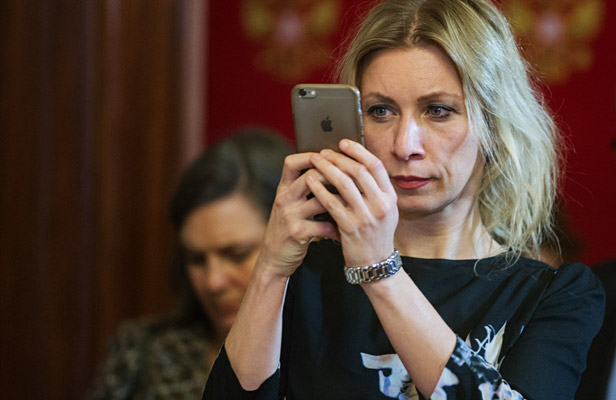 Foreign Ministry Spokesperson Maria Zakharova. Source: Sergey Guneev/RIA Novosti
Foreign Ministry Spokesperson Maria Zakharova. Source: Sergey Guneev/RIA Novosti
Russian Foreign Ministry Press Secretary since August 10, 2015.
The first woman to ever occupy this position, Zakharova actively uses social networks and has earned a reputation for her tough statements, especially on the Russian military operation in Syria.
When UK Foreign Secretary Philip Hammond said that Russian President Vladimir Putin could end the madness in Syria with just one phone call to Syrian President Bashar al-Assad, Zakharova replied: "If after Assad's departure the madness ends, where in this case will Daesh [the Arabic name for ISIS – RBTH] go? Or will someone also call them and say that the game is over? Attention, the question is: Who will call Daesh?"
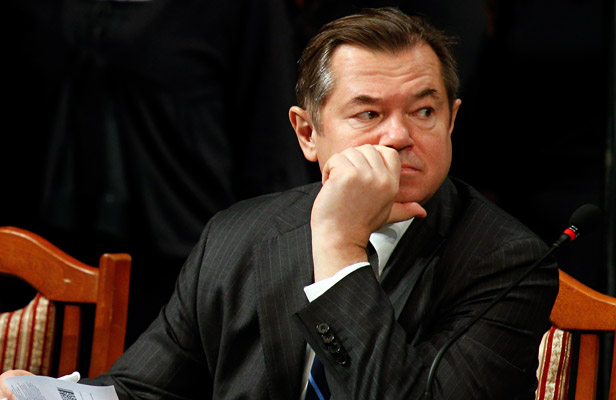 Russian presidential aide Sergei Glazyev. Source: Vitaly Nevar/TASS
Russian presidential aide Sergei Glazyev. Source: Vitaly Nevar/TASS
Economist, Minister of Foreign Trade Operations in 1992-1993, academician and in recent years presidential advisor.
Glaziev's report for the Security Council committee, which contains recommendations for improving the Russian economy's competitiveness, created a storm even before its publication in September.
In Glaziev's suggestions the mass media saw an attempt to return to the command economy of the Soviet days and significantly strengthen the role of the government.
Glaziev himself affirms that he suggested creating an effective system of long-term credit for real production, activating monetary emission. Its volume will be determined by the scale of the projects that the government and business select. In his view, if this program is realized Russia's GDP can grow at a rate of 7 percent a year.
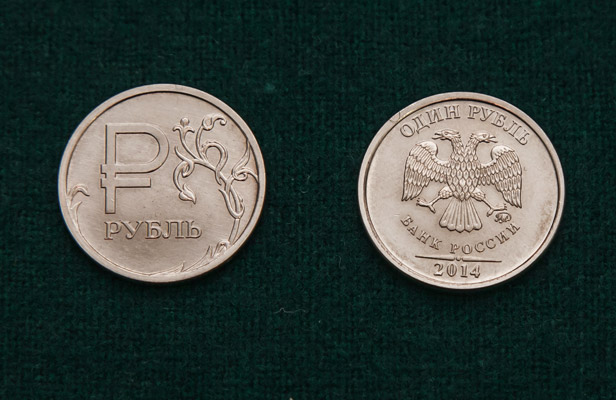 The Central Bank has issued coins with new rouble symbol. Source: RIA Novosti
The Central Bank has issued coins with new rouble symbol. Source: RIA Novosti
Russia's embattled national currency became a full-fledged character in its own right for Russians in 2015 – it was followed, it was cheered for.
In 2015 the ruble did not justify the gloomy predictions that had been made at the end of last year. Back then observers had forecast the further devaluation of the Russian currency, predicting a value of 100 rubles to the dollar. It seemed that the forecasts were about to become reality.
In the summer of 2015 there were rumors that the Russian Central Bank had suggested that credit organizations carry out a stress test based on a value of over 100 rubles to the dollar. The Central Bank denied this. For now the ruble is hanging on (the dollar costs about 70 rubles), even though its value is decreasing along with cheapening oil.
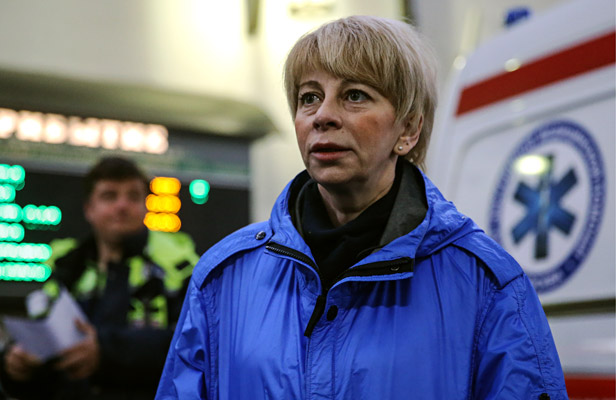 Doctor Liza. Source: Sergei Savostyanov/TASS
Doctor Liza. Source: Sergei Savostyanov/TASS
Elizaveta Glinka, known as Doctor Liza, is a doctor and emergency physician. She heads the Just Help Foundation.
As the non-profit organization's site says, the foundation helps "the homeless, the terminally ill, pensioners living in solitude and invalids who have been deprived of their homes and livelihood."
After the beginning of the war in the Donbass in eastern Ukraine, Doctor Liza started helping children in the conflict zone. According to Russian media, Glinka has evacuated at least 250 children in need of medical attention from the Donbass. For this work in 2015 she was awarded the Svoya Koleya (Own Track), a prize established by one of Russia's charity foundations.
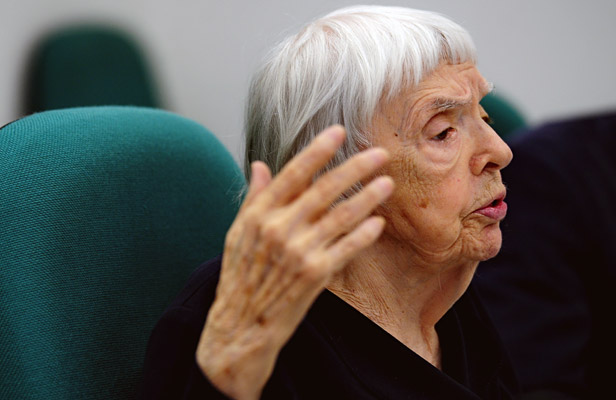 Human rights activist Lyudmila Alexeyeva. Source: Zurab Dzhavakhadze/TASS
Human rights activist Lyudmila Alexeyeva. Source: Zurab Dzhavakhadze/TASS
Human rights activist, one of the founders and longtime director of Russia's oldest human rights organizations, the Moscow Helsinki Group (MHG).
In the 1960s Alexeyeva was a dissident. Persecuted by the KGB, in 1977 she emigrated to the U.S., where she worked for Radio Liberty and the Voice of America radio stations. In the 1990s she returned to Russia and headed the MHG.
In 2015 she returned to the presidential human rights council, which she had left three years earlier due to a disagreement about elections to the council by means of the internet. Alexeyeva has said that her main objective since returning to the council is the fight against the NGO-foreign agent law that has been in place since 2012. It obliges all NGOs that receive foreign financing and that participate in political activities to register as "foreign agents."
During a council session on Oct. 1 Alexeyeva asked Putin to "annul this damaging law." "Don't suspect us (human rights activists) of that which we are not guilty of," said Alexeyeva, explaining that by receiving money from abroad the NGOs use it only so that people in Russia can have a better life.
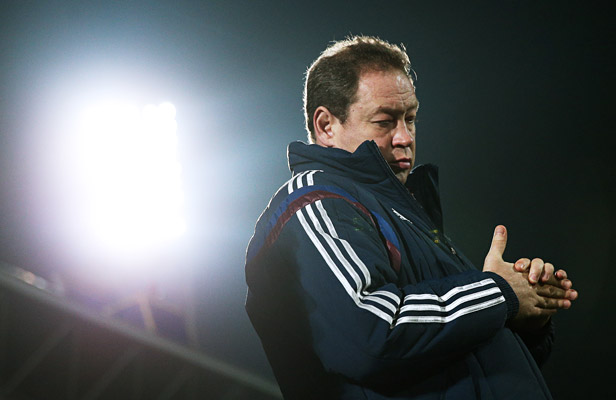 Leonid Slutsky. Source: Stanislav Krasilnikov/TASS
Leonid Slutsky. Source: Stanislav Krasilnikov/TASS
He has been coaching the Russian national soccer team since August 2015.
Slutsky got the top job in Russian football after Italian coach Fabio Capello's three-year tenure with the national team ended in disappointment at a time when Russia's qualification for Euro 2016 was in serious doubt. With Slutsky as coach the team won five out of six matches, including those against Portugal and Sweden. In October the team secured its place at next summer’s tournament in France.
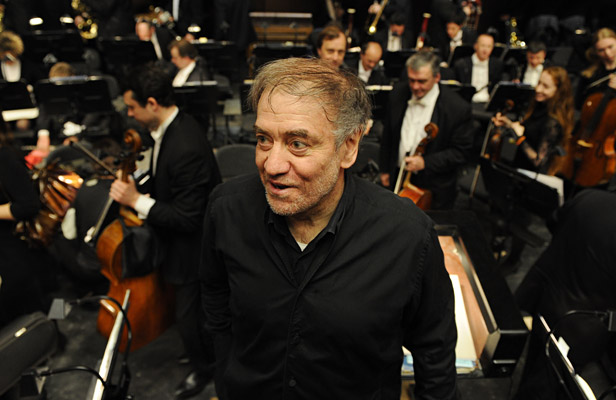 Mariinsky Theatre artistic director, conductor Valery Gergiev. Source: Ruslan Shamukov/TASS
Mariinsky Theatre artistic director, conductor Valery Gergiev. Source: Ruslan Shamukov/TASS
Conductor, artistic director and general director of the Mariinsky Theater in St. Petersburg. In 2015 the Primorsky Opera Theater in Vladivostok became a branch of the Mariinsky.
"This is a good idea since Vladivostok is a very important theater. It is close to South Korea, China and Japan," said the superstar conductor in an interview with the Rossiyskaya Gazeta newspaper.
In 2015 Gergiev resigned from the position of chief conductor of the London Symphony Orchestra, which he had headed for 10 years. He then became chief conductor of the Munich Philharmonic Orchestra. In his words, the first two-three months of work with the new orchestra "were heavenly" – the orchestra played both German and Russian works.
All rights reserved by Rossiyskaya Gazeta.
Subscribe
to our newsletter!
Get the week's best stories straight to your inbox